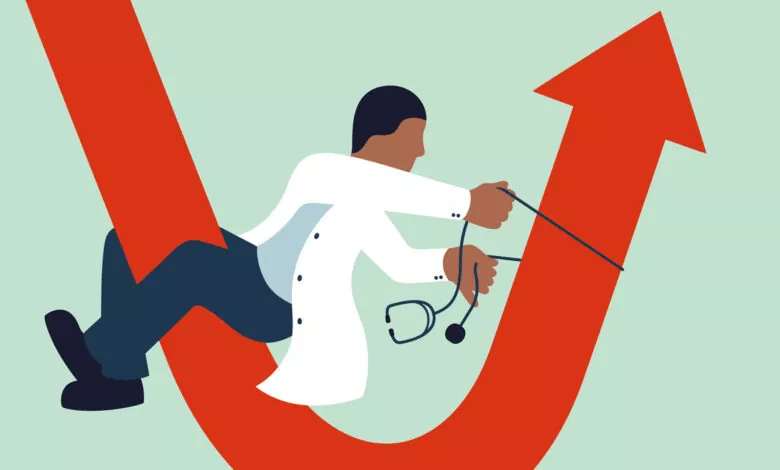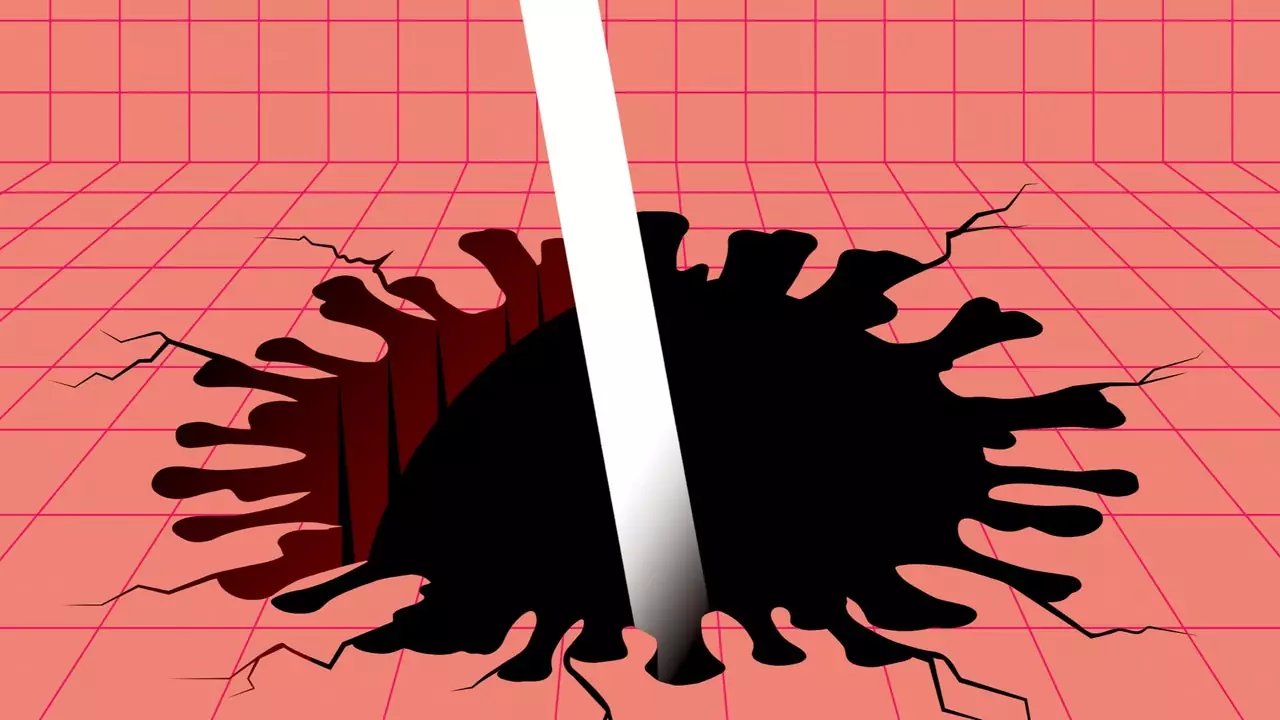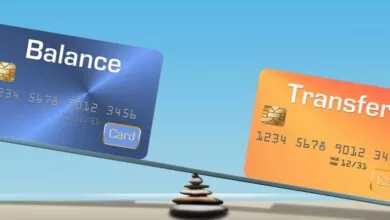The Financial Crisis 2008 & The People Who Profited During The Crisis

Society, at large, has always been divided by and been dependent upon the circumference of the current financial crisis 2008 state of affairs. There is no denying the role played by money in the world of the 21st century. Money is ultimate, and it is the fuel that runs the world. The economy of a country determines the livelihood of the people that abide in it. It determines the capacity of a nation to allocate its resources to aid the people.
Economists use the GDP to calculate the value of goods that were produced during a period. It is not the nation’s intended wish to push through as the leading economy of the world. But a leading economy can safeguard and uplift the financial conditions of its people. But it is imperative to understand that it is impossible to maintain a stable economy since prices often fluctuate based on various reasons. This lack of assured stability is, in part, caused by the unavoidable interdependence each economy is prone to stand by.
Countries go through a long period of recession concerning the production and consumption of goods. This sustained slow-down of economic activity is termed as an economic depression. Times become uncertain when an economic depression is on the rise. People will find profound, tangible changes in their financial situation. Cutbacks on supply/demand, bankruptcies, price deflation, stock market crashes, and unemployment are some of the characteristic features of economic depression.
Economic analysts label a period of recession as economic depression when the shortfall is constant for a span of more than two years. The use of the word “depression” was taken from the Great Depression that swept the United States during the 1930s. It may also be called a “recession” or “effects of financial crisis 2008” or “stagflation.” History has recorded many economic recessions that have shaken the world. They include “The General Crisis” (1640), “Panic” (1837), “Long Depression” (1837), and the “Great Depression” (in the 1930s).
It is implied that one ought to learn from the experience of recovering from a recession. But it does not furnish foolproof economic planning. The period between 2001 and 2007 is recorded to be the worst period in the nation’s history as mortgage debts rose to the highest level. The effects of this economic collapse also had its share of creating the “Great Recession.” It was a recession that struck the core of every national economy of the world in one way or the other. The depression is estimated to have lasted for about two years (2007-2009). Economic scientists of the world concluded that this was, in fact, the most severe financial meltdown since the “Great Depression” of the 1930s.
Panic: The untold story of the 2008 Financial crisis
The Financial crisis that hit the world economy in 2008 has been credited to the United States housing bubble’s failure to meet with the excessive financial risks it took. In relevance to the scale of its damage, it is also termed as the “Global Financial Crisis & 2008 recession” It was not a single economic recession, as it enabled a series of problems to the world’s other economies. It led to the bankruptcy of the Lehman Brothers, which had secured itself as a holdings company since 1847.
The crisis also caused the breakdown of the subprime mortgage market. People were pushed to sell all their securities in light of the panic that ensued. When researchers tried to trace the root cause of the housing bubble incident, they found a rise in the number of people who failed to pay back mortgages. It was also found that more than half of all mortgages in 2006 were no-documentation loans. Panic: The untold story of the 2008 Financial crisis.
Due to the rapid decline in the price of housing and durable goods, China and the U.S. met a fall in their stock prices, which was rather steep. Leading economists of the time, such as Alan Greenspan, predicted a crisis that was bound to happen. But no one calculated the after effect that ensued after “New Century Financial Corporation,” a real estate investment trust, filed for bankruptcy in 2007. Many say, afterwards, that this was the trigger that started the “Subprime Mortgage Crisis.”
The following months of the year 2007 were prone to minor influences to cause the crisis finally. In continuation, Bear Stearns liquidated its hedge funds, American Home Mortgage filed for bankruptcy, BNP Paribas – one of the largest banks in Europe decided to block withdrawals from its hedge funds, Delta Financial Corporation filed for bankruptcy and these occurrences hinted at a storm that was long underway.
The succeeding year began with the U.S. stock market announcing that they fell to an all-time low in January, and this was more or less the predicament of other stock markets of the world. With respect to the series of changes in the world’s economic weather, the Economic Stimulus Act of 2008 was enacted. It was a series of stimuli arranged to boost the economy of the United States.
The year 2008 only brought in more uncertainty as IndyMac(U.S. Bank) failed, Fannie Mae (A Federal National Mortgage Association) and Freddie Mac (A Federal Home Loan Mortgage Corporation) was taken over by the government, The American International Group was also seized, Washington Mutual went bankrupt, and finally, in the December of that same year, the Greek Riots began.
This, as predicted, affected the other economies of the world. Every business magnate of the world was taking shelter under safer modes of banking. It has to be noted that not everyone was shaken by the scale of the global economic damage. Those who studied the fluctuations of the economy predicted the storm, and they made preparations.
The financial crisis of 2007-2008 came as a blessing in disguise.
Warren Buffet is an American investor and the CEO of Berkshire Hathaway. at a time when markets were finding it difficult to find their feet, bought perpetual preferred shares in Goldman Sachs for 5 billion dollars. He also bought shares in General Electric for 3 billion dollars. His purchase of shares also included Swiss Re and Dow chemical. Thus, Buffet used the instability to his advantage, earning billions of dollars. The risk was sure worth the reward In an interview with the New York Times, Buffet shares his undaunting secret to buying shares during the crisis. He says, “A simple rule dictates my buying: Be fearful when others are greedy, and be greedy when others are fearful.” Buffet openly admits to using the wind of caution to his advantage.
He used the collapse of the market full to his advantage. When the markets admitted the crash, Buffet invested 5 billion dollars into Goldman Sachs. He also registered another $5 billion worth of shares for the future. It is quite unimaginable to believe that Buffet did not lose hope on the U.S. economy to spring back to normalcy. In an interview with The Wall Street Journal, he said that U.S. companies were placed so close to each other like dominos. To him, crisis brought in the rare chance to buy high-valued companies at a lower cost.
Buffet can be seen in the light of an economic prophet. It was primarily due to the wisdom that was gained through his years of experience. He was firm of the belief that the recession would only be a temporary lapse of normalcy from which the economy can soon recover from. People are always anxious to buy shares when the market goes up but what Buffet did was quite the opposite. He made a profit of 10 billion dollars during the crisis.
John Paulson
John Paulson – One of the brilliant business minds that predicted the bubble crisis would be John Paulson, Some even say that the only person to gain most out of the financial crisis was John Paulson. He was a hedge fund manager. His timely act of making a bet against the U.S. housing market raised the value of his Paulson & Co. to a speculated 15 billion dollars. Paulson had a similar experience of breaking through during the “credit crisis.”
At a time when everyone was weak on their knees and were selling what all they possibly could, John Paulson stood his ground to beat the odds. Greg Zukerman (Wall Street Journal journalist) hailed his decision as “the greatest trade ever.” Zuckerman claimed that the crisis was predicted by Paulson two years in advance. He writes in the Wall Street Journal, “The biggest winner looks to be John Paulson, a little-known hedge fund manager who smelled trouble two years ago.” It was told that he made a profit of 20 billion dollars during the crisis.
Even in 2005, Paulson identified that the credit bubble would soon result in a massive recession. At that point, he saw the value of housing investments rise to levels that were entirely baseless. Paulson observed that banks were lending loans to those who did not have a job history. As a result, Paulson made billions and billions of dollars well before the crisis had begun to start. Paulson, throughout his career, was always concerned with the downside of the market rather than the upside. This may sure be the secret to his success. The steadfast ability to make decisions at the time of crisis is the reason that pushed some of these investors as success stories. Part of his success came from looking for shorts that enabled him to build what would be credit default swaps. He used this method to sustain income growth when the crisis had hit the market. Gregory Zuckerman has nothing but praise for John Paulson. He says that when the whole market was trying to cover up losses, Paulson flourished. This is, in fact, attributed to the perfect timing of his investments.
Paulson used the crisis best by employing a strategy that many of his contemporaries deemed unsafe. John Paulson was not a well-known businessman prior to the 2008 crisis. His timely decision has, in a way, helped the recovery of the country’s economy.
Jamie Dimon – At the onset of the crisis, Jamie Dimon– Chairman and CEO of JPMorgan Chase, made use of the situation by buying out Bear Stearns and Washington Mutual. They were both the ruins of the financial crisis of 2008. Dimon took charge of J.P. Morgan Chase and Company in the year 2004. Unlike Paulson, Dimon did not predict the recession well in advance. But Dimon had a well-planned allotment of capital for any such recession that may strike the market. When all the markets were losing ground, J.P. Morgan came out of the crisis more profitable.
The situation also helped Dimon to establish himself as a saviour of the nation. This boost in public opinion was since J.P. Morgan was the only company that offered credit to its customers during the crisis. Ben Bernanke was the head of the Federal Reserve. Bernanke made a profit of 82 billion dollars.(https://www.investopedia.com/financial-edge/0411/5-investors-that-are-both-rich-and-smart.aspx)
Carl Icahn -During the crisis, the Fontainebleau property in Las Vegas was bought for 155 million dollars by Carl Icahn– founder of Icahn Enterprises.
James Rickards -It was not a surprise to find James Rickards- an American lawyer, to find success during the estranged financial circumstance. He changed the way economists thought about money through his book Currency Wars: The Making of the Next Global Crisis(2011). Rickards also has experience in being an informant to the CIA and Pentagon on financial warfare.
Mario Draghi – A banker, former President of the European Central Bank – The crisis was also favourable to Mario Draghi. He is considered the most influential economist in the world. Over the course of his career, Draghi has had the ill-luck deal with one crisis after another. Some align him as a hero of the financial crisis whose ideas have to be implemented in textbooks.
Allen Greenspan -When the crisis was at hand, people started to believe in the Austrian business cycle theory advocated by Ron Paul for quite some years. Similarly, the 2008 crisis has also opened the avenue for appreciating Allen Greenspan. He has been a strong advocate for fiscal policies that have served as the cure for many of the crises before 2008.
Mike Maloney was the founder and owner of GoldSilver.com. Like many who predicted the recession in advance, Maloney was more than ready to face the breakdown. This was proved by his want to learn history, thereby discovering the economic patterns that repeated themselves over time.
David Royce, who founded Aptive Environmental, was undoubtedly one of the largest benefactors of the recession. He used the same method as Warren Buffet did. When everyone else shied away from making deals during an uncertain time, Royce, however, did not steer away from an opportunity. He was also able to recruit some of the best people for his company after the crisis. It was calculated that his company made about 23 billion dollars when the recession came to an end. Greed seems to be the watchword to define best the general tactics employed by the benefactors of the recession. Economists deem that some of the best success stories stem from the century were driven by men who were greedy when everyone else was afraid.
Economists often employ themselves to ascertain or predict an economic recession well before they arrive. These risk factors determine weak from the strong, the ignorant from the perceptive, and the rest from the best. People who benefitted from the crisis also include well-known personalities like Donald Trump, Satoshi Nakamoto, and Bernie Sanders. Some became popular for using their strategies to fix the financial problem.
New economic ideas were formed as a result of facing the crisis head-on. A question has to be raised concerning the ability of the human species to survive. It is something innate in us to live through times of struggle. As the famous saying goes, “When life gives you lemons, make lemonade” some made appropriate use of the crisis, and they proved to be successful investors. We could even make a vague assumption that these analysts and business tycoons who got through the financial crisis with flying colours, to a certain extent, wanted such a collapse of the system. This does not come as a surprise as there were people who used the fall in the national economy that took place on account of the second world war, to their benefit.
One major characteristic found in the companies that fared well would be that they were all defensive. During the crisis, those who were intimidated by the situation rushed to invest in these companies. One might also add that these companies were cheaply valued at the time of 2008.
In one of the estimates made by Yahoo Finance, fast food industries found themselves in a much favourable position during the recession. This was so because the incomes of the middle- and lower-class people were heavily reduced. People found that companies like fast food joints were affordable, and thus a considerable rise can be seen in the profits of such companies. For example, McDonald’s Corporation made progress of 4.6% profit.
People, in general, are chained to the ideas that were leftover by their predecessors. Thinking out of the box has always been a crime that has too many risks attached to it. To keep all your money safe under your pillow was the motto when the market prices were low. As I said, the practices passed on to you from those that came before you often prove to be the safest way to carry out things. They have the certification of being tried and tested for years. In contrast to such an approach, every risk, if carefully planned, has its reward.
People who fared well against the crisis made a huge gamble. They accepted the risks that were involved. Yet, these were calculated risks based on experiences with a fluctuating market. The fundamental strategy would be to understand that history often has a way of repeating itself. Those who kept themselves updated on the rise and fall of past economic structures could have made a better judgment on the financial crisis of 2008.
Read More: Need Holidays






